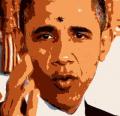Defining Marriage
A judge's ruling may cause the issue of the definition of marriage to come before the Supreme Court. (Breitbart)
Earlier this month, the Supreme Court declined to take up the issue of the constitutionality of gay marriage, despite requests from both sides of the issue that it do so. One reason that it is thought to have denied review is that there is not yet a split among the U.S. Courts of Appeals, which have thus far agreed to strike down state traditional marriage laws. If the First Circuit upholds the Puerto Rico ruling, a split would suddenly emerge.
In an elegant decision handed down Tuesday, Perez-Gimenez relies on two basic arguments. First, he notes that the U.S. Constitution is silent on marriage, thus reserving authority over marriage to the states--and adds that a 1972 precedent to that effect in Baker v. Nelson, which other courts have considered void, still holds. Only the Supreme Court, Perez-Gimenez says, may overturn Baker--and to this date, he notes, it has declined to do so.
Second, Perez-Gimenez notes that last year's twin rulings in the celebrated U.S. v. Windsor and Hollingsworth v. Perry do not actually void state powers to ban gay marriage. Hollingsworth v. Perry, he notes, was dealt with on procedural grounds, and though Windsor struck down the federal Defense of Marriage Act, it "reaffirms the States’ authority over marriage, buttressing Baker’s conclusion that marriage is simply not a federal question."


